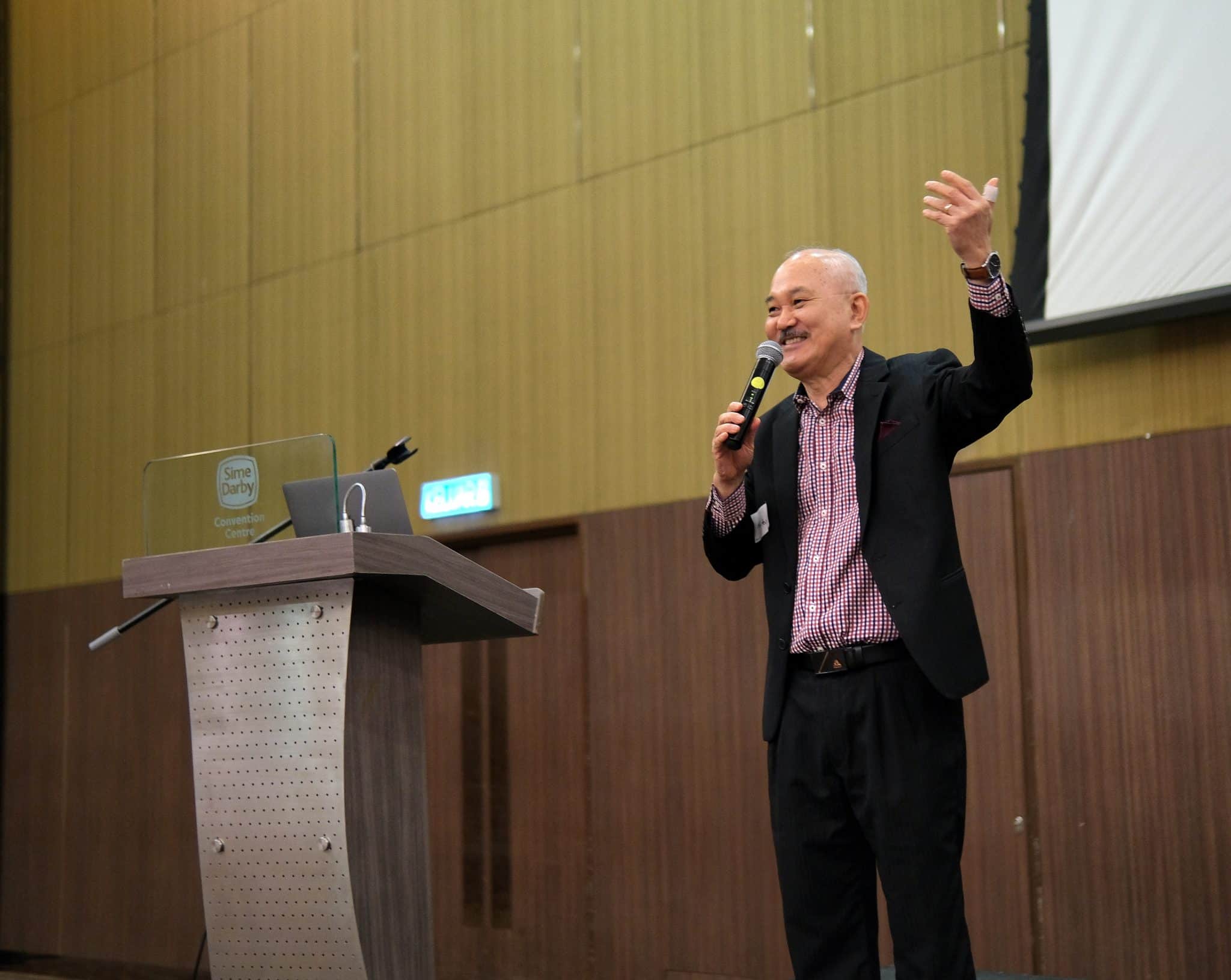Making a difference with differences: Managing diversity in the workplace
Dr John Ng // October 3, 2018, 4:19 pm
Photo by rawpixel on Unsplash
Differences can become opportunities for growth, or occasions for disaster.
It is not differences that will break a relationship but how we manage differences that will either make or break relationships at work and home.
In his book, The Seven Principles of Making Marriage Work, John Gottman talks about managing differences through the principle of “nurturing fondness and admiration, which embraces a positive view about our spouse, respecting and appreciating their differences”.
Over the years of my coaching and consulting work, I have helped many to manage these differences by adopting the Meta Five ‘A’ framework in managing differences. Allow me to explicate:
1. Acknowledge: Recognise our differences
We live in a diverse culture. Diversity is the name of the game in the workplace. Even in marriage, our spouses are so different from us.
We have differences in values, opinions, interests, race, ethnicity, culture, personalities and habits.
We need to constantly recognise that we are different. The operative word is “constantly” because we forget.
The first thing that we need to know about differences is to constantly recognise that we are different. The operative word in this phrase is “constantly”.
We tend to forget that we are different. My tendency is to forget that my wife is different from me.
I tend to forget my wife prefers quiet moments in her life to energise her.
As for me, I am an extrovert and get my energy from people and external environments.
So, I love to invite as many friends as I can to our home. But crowds are taboo to her. She’d rather spend a quiet evening with a few close friends than a boisterous group of people.
My colleague, Michael, and I are very different even though we have known each other for 55 years since we were six.
Our work styles and habits are totally different. His desk is absolutely clean and neatly arranged. Mine is a mess. He prefers to have a one-on-one session while I like big meetings. I have to remind myself that Michael is very different from me because I prefer that he does things my way or the highway!
2. Accept: Recognise individual strengths and weaknesses
Every strength is a weakness and every weakness is a strength.
A co-worker who is organised is good but organisation can become an obsession.
Being social and friendly is wonderful but we can neglect our work when we spend too much time with our friends and colleagues.
Being intense need not be a weakness. It shows commitment and passion. We need to focus on our co-workers’ passion rather than their intensity.
When our relationship is good, we focus on their strengths but when the relationship is bad, we perceive their strengths as their weaknesses.
We need to accept that strengths can become weaknesses. We can manage it better by learning to accept our colleagues’ strengths and managing around their weaknesses.
3. Accommodate: Adjust and moderate our behaviour and expectations
This becomes more acute when we get into conflicts. Moderating our expectations and behaviours will go a long way towards managing our differences. There are three types of expectations that can create problems in marriage:
Unrealistic expectations
Often, our expectations are unrealistic. In high-performing organisations, we call them “stretch goals”.
But unfortunately, these goals can become so onerous that they kill the spirit and motivation.
Hence, I would rather work with individuals and help them achieve shared, realistic, stretch goals rather than unrealistic, unshared, stretch goals.
The latter will drain our emotional energy and lower the morale of people.
Hidden expectations
Sometimes, at work, we don’t express our expectations to our co-workers.
Bosses are often guilty of that. We expect our staff to know what we want.
This can create unnecessary anxiety.
For example, I remember a young manager, Raj, once told me: “My boss expects me to reply every email within 24 hours and reply in a certain way, but he never tells me what he wants.”
“Why?” I enquired. He replied: “Because he expects me to read his mind and to second-guess him. He won’t tell me even when I ask him. He tells me, ‘You should know better.’”
Honestly, Raj didn’t know. Worse still, the boss’ expectations changed according to the mood of the day!
Mismatched expectations
Sometimes, we get into situations and relationships with mismatched expectations.
For example, when our boss goes out for a dinner meeting with some clients, he expects his staff to be there for all the meetings.
But there are occasions when these meetings are more social in nature and the staff has his or her family to take care of.
So, when the staff makes excuses not to be there, the boss becomes annoyed and feels that he or she is irresponsible.
Hence, being accommodating to each other’s needs and priorities is important in managing differences.
4. Appreciate: Compliment each other’s worth and contributions
“To affirm life is to deepen, to make more inward, and to exalt the will to live.” – Albert Schweitzer
This is very un-Asian and counter-culture.
Think about it – when was the last time we complimented our staff or even our bosses? No wonder we feel so unappreciated. This is an area many of us take for granted.
When was the last time you affirmed your staff?
What we focus on, we magnify.
No wonder our staff feels so demotivated in their work. We seldom praise or affirm. We often criticise the slightest mistakes. More often than not, our common default mode is to find fault, jibe, and blame or attack.
Remember that what we focus on, we magnify. If we choose to focus on their temper and fault-lines, they will become like hot-tempered monsters and good-for-nothing to us.
Another aspect in building up a healthy workplace is catching people doing right. This is a rarity.
If your colleagues’ expertise is in providing technical support and working on details, affirm their passion, strength and effort. Notice what they are doing right in the organisation.
The workplace environment and atmosphere can become unbearable when we nitpick at each other. So, let’s not make life more difficult than it already is by attacking each other’s weaknesses.
We all need to be affirmed. And we need to affirm each other’s strengths.
5. Applaud: Share in success and failure together
Great workplaces are places where people learn to share their struggles and pains. The culture of openness is very difficult to find.
We tend to pretend, ignore or hide our weaknesses, mistakes and failures. Empathy towards each other’s pain is a strong attribute that keeps the workplace strong.
Pain is part and parcel of life. Disappointment will come to us.
The ability and the opportunity to share these candidly can be very liberating.
In most organisations, we tend to shy away and avoid those colleagues who are in trouble.
Instead of being comforting or supporting, we often neglect or worse still ostracise them – rubbing salt into the wound.
The workplace can be home when we are able to sympathise and empathise, rather than criticise and demonise.
Similarly, the ability to enter fully into your colleague’s success is another key ingredient in making a great workplace.
In my consulting work, I have seen organisations become great places to work when colleagues have this kind of bond and camaraderie. Our bond will get stronger. Our motivation will be higher. Our drive to perform will come from within.
Learn to be grateful
Gratitude makes us feel for others. We become more keenly aware of other people’s needs. A self-made person does not really care for people.
Be involved in community work
Sensitivity comes from cultivating a spirit of compassion for the poor and underprivileged. It is important that we get involved in community work.
Learn to be generous
Sharing is an important way to keep our hearts open to others. This will also make us become less calculative and more giving to our spouse.
Unfortunately, we are sometimes too self-absorbed to care. There is a Swedish proverb: “When we share the pain, we halve the pain. When we share our success, we double the joy.”
Finally, remember to acknowledge, accept, accommodate, affirm and applaud.
This will go a long way in transforming our differences for growth.
This article was first published on leadership.com.sg and is republished with permission.
We are an independent, non-profit organisation that relies on the generosity of our readers, such as yourself, to continue serving the kingdom. Every dollar donated goes directly back into our editorial coverage.
Would you consider partnering with us in our kingdom work by supporting us financially, either as a one-off donation, or a recurring pledge?
Support Salt&Light




